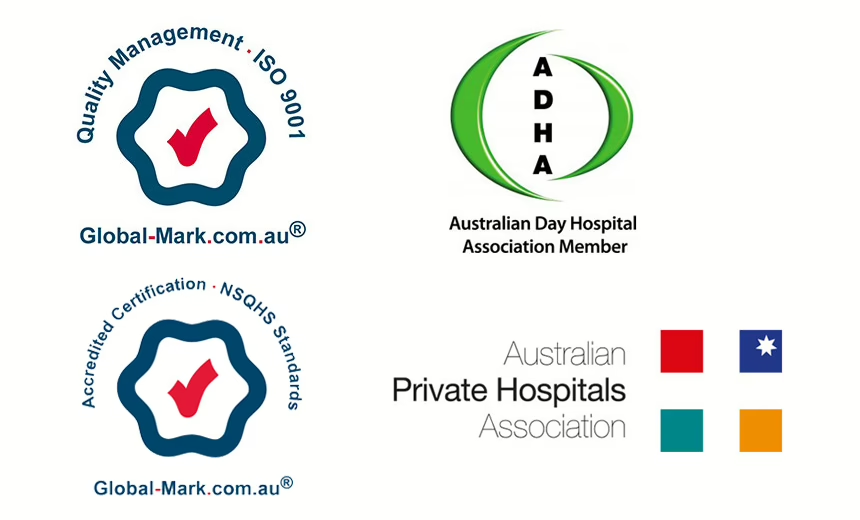Subscribe to eyeMatters periodic news
"*" indicates required fields

Accreditation

Vision Day Surgeries
All Vision Hospital Group day surgeries, and many of our consulting clinics, are fully certified against the ISO 9001 accreditation scheme, an internationally recognised quality management system which is the standard accepted by the Federal Government.
From 2013, all Vision Hospital Group day surgeries have also been accredited against the National Safety and Quality Health Services (NSQHS) Standards, which is a mandatory requirement for all licensed hospitals and day surgery facilities.
Accreditation is conducted on-site by an independent team of expert health professionals, who review the safety and quality of the service provided by Vision Hospital Group and Vision Eye Institute.
An annual surveillance audit is conducted to ensure that processes are monitored, maintained and reviewed, and that continual improvements are implemented. A re-certification audit is conducted every 3 years. All safety and quality processes within the day surgery are assessed to ensure the standards required by ISO 9001 and the NSQHS are met.
National Safety and Quality Health Service Standards (Second edition)
The eight NSQHS Standards are:
- Clinical Governance, which describes the clinical governance, and safety and quality systems that are required to maintain and improve the reliability, safety and quality of health care, and improve health outcomes for patients.
- Partnering with Consumers, which describes the systems and strategies to create a person-centred health system by including patients in shared decision making, to ensure that patients are partners in their own care, and that consumers are involved in the development and design of quality health care.
- Preventing and Controlling Healthcare Associated Infection, which describes the systems and strategies to prevent infection, to manage infections effectively when they occur, and to limit the development of antimicrobial resistance through prudent use of antimicrobials, as part of effective antimicrobial stewardship.
- Medication Safety, which describes the systems and strategies to ensure that clinicians safely prescribe, dispense and administer appropriate medicines to informed patients, and monitor use of the medicines.
- Comprehensive Care, which describes the integrated screening, assessment and risk identification processes for developing an individualised care plan, to prevent and minimise the risks of harm in identified areas.
- Communicating for Safety, which describes the systems and strategies for effective communication between patients, carers and families, multidisciplinary teams and clinicians, and across the health service organisation.
- Blood Management, which describes the systems and strategies for the safe, appropriate, efficient and effective care of patients’ own blood, as well as other supplies of blood and blood products.
- Recognising and Responding to Acute Deterioration, which describes the systems and processes to respond effectively to patients when their physical, mental or cognitive condition deteriorates.
The information on this page is general in nature. All medical and surgical procedures have potential benefits and risks. Consult your ophthalmologist for specific medical advice.
Date last reviewed: 2025-10-28 | Date for next review: 2027-10-28
